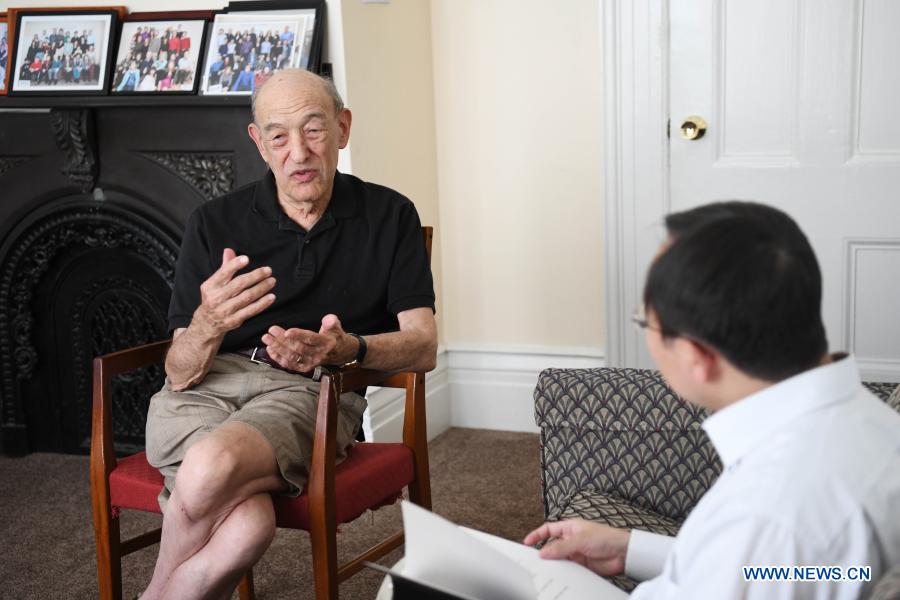
File photo taken on Sept. 5, 2018 shows Ezra Vogel (L) speaking during an interview in Cambridge of Massachusetts, the United States. Ezra Vogel, professor emeritus at Harvard University and a renowned scholar on China, passed away at the age of 90 on Sunday, according to the Fairbank Center for Chinese Studies at Harvard University. (Xinhua/Liu Jie)
WASHINGTON, Dec. 20 (Xinhua) -- Ezra Vogel, professor emeritus at Harvard University and a renowned scholar on China, passed away at the age of 90 on Sunday, according to the Fairbank Center for Chinese Studies at Harvard University.
"It is with great sadness that we announce the passing of our former director Ezra Vogel (1930-2020)," said the center on Twitter. "He was a true champion of our center, an erudite scholar, and a wonderful friend. He will be truly missed."
The passing of Vogel is "a huge blow to the field, especially at this critical time, because Ezra was a major supporter of the effort to inject greater sanity and balance into US thinking about China," tweeted Michael Swaine, director of the East Asia Program at Quincy Institute for Responsible Statecraft.
In an online event this October, Vogel suggested the United States have high-level talks, intellectual exchanges, and economic cooperation with China.
"Competitors can talk as competitors, but it doesn't have to be enemies. It can be competitors; it can be suspicious. But, it can be under some kind of control," he noted.
Vogel once lived in south China's Guangdong Province for a total of one year, and has visited China every year since the late 1980s.
He spent ten years studying China's former leader Deng Xiaoping and wrote a book titled "Deng Xiaoping and the Transformation of China." Published in 2011, the over 900-page tome has provided a window for Westerners to gain a better understanding of modern China.
In an interview with Xinhua in November 2019, Vogel acknowledged that the Sino-U.S. relations were tense, but added that he believes both Chinese and U.S. officials should work together to pursue their common interests.
"There is a real danger of serious frictions," and it is very important for all who care about good relations with China to do what they can to improve them, Vogel said, stressing that a stable, constructive relationship is vital to both the world's two largest economies and the rest of the world.